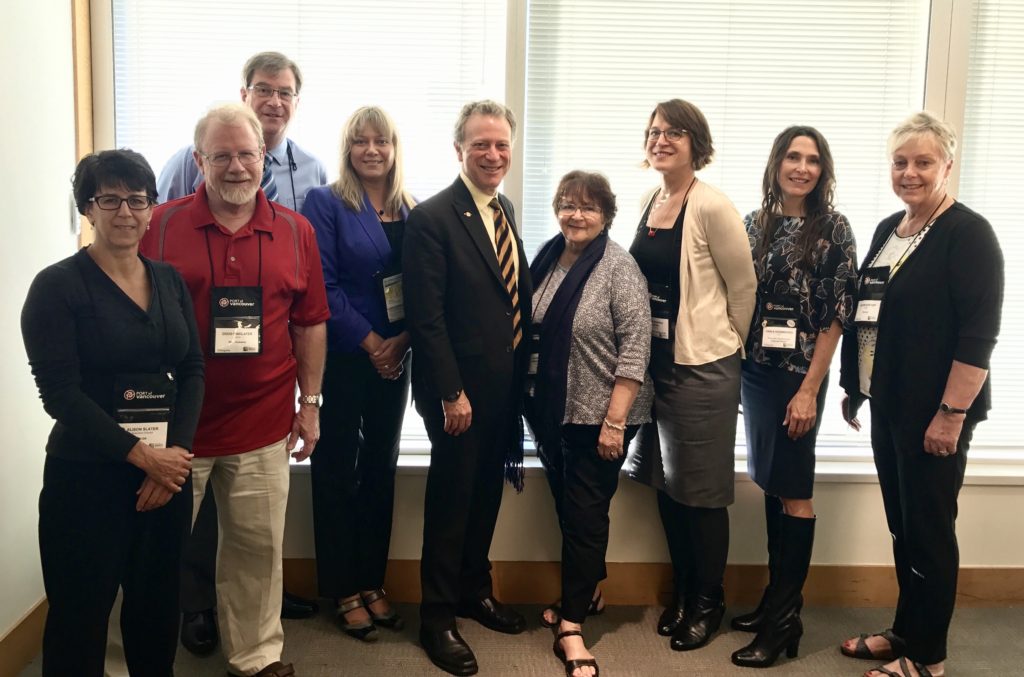Kelowna, B.C. – Okanagan Basin Water Board (OBWB) directors, who were in Vancouver for the annual Union of BC Municipalities convention along with officials from the new B.C. government, took the opportunity to talk invasive zebra and quagga mussels. Several board members met with B.C. Environment Minister George Heyman yesterday and presented recommendations to help prevent a devastating infestation in Okanagan and B.C. waters.
In fact, it was at least Heyman’s fourth meeting on the mussels this week. He had a brief 15-minute meeting with the Southern Interior Local Government Association (SILGA) on Tuesday, in which OBWB Executive Director Anna Warwick Sears was invited to attend. This was followed by another 15-minute meeting on Wednesday with Regional District of North Okanagan, which also included Sears, and a separate 15-minute meeting with representatives from Sicamous, Columbia-Shuswap Regional District and the Splatsin Indian Band. By the time the OBWB meeting occurred, Heyman was well-versed on the risks posed by the mussels and was interested in talking solutions.
“The meeting went exceptionally well,” reports OBWB Chair Tracy Gray, adding that 45 minutes were set aside to allow for a deeper conversation. “The minister was well-informed on the issue and said let’s talk about the recommendations.”
The issue with the mussels, which originate from Eastern Europe, is that they are making their way across the U.S. and parts of Canada, primarily hitchhiking their way on watercraft. They are known to stimulate toxic algae blooms, litter beaches with sharp shells, clog boat motors, foul water intakes and outfalls, put fish and the ecology of lakes at risk, and more. At this time, there is no proven method to eradicate the mussels once they arrive that doesn’t also cause significant environmental impacts. The Okanagan is considered at high risk because of its warm, calcium-rich waters. A 2013 study for the Water Board estimated the mussels would cost the Okanagan $43 million a year to just manage. The Pacific NorthWest’s B.C., Alberta, Saskatchewan, Washington, Idaho and Oregon are one of the few remaining regions in North America believed to be mussel-free. Montana declared a Natural Resource Emergency in October 2016 when they discovered mussel larvae in two of their reservoirs, which has sparked great concern since it’s only a few hours’ drive from B.C.


